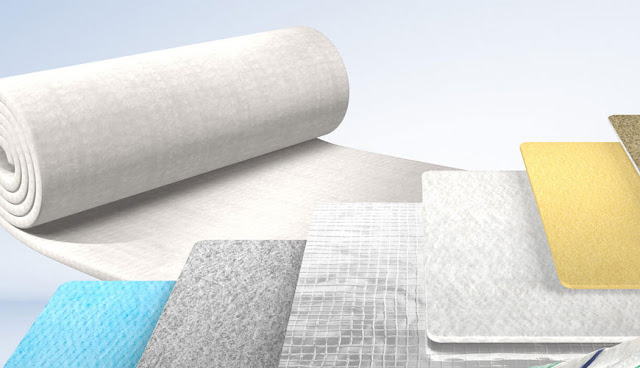Thermal Insulation Materials: Keeping Buildings Cool and Energy Bills Low
 |
| Thermal Insulation Materials |
Types of Thermal Insulation Materials
There are various types of materials that are used for thermal insulation
purposes in construction and other industrial applications. Each material has
its own pros and cons depending on the requirement.
Glass Wool
Glass wool or fiberglass is one of the most commonly used thermal insulation
materials. It is made from fine fibers of glass and is available in the form of
batts, boards and loose-fill. Glass wool provides excellent insulation against
heat and sound. It is resistant to moisture, rot and mildew. However, it is not
suitable for exterior applications where there is a risk of water damage.
Mineral Wool
Mineral wool is another synthetic fiber Thermal
Insulation Materials made from molten slag or rock. It has temperature
resistance up to 1200°F. Mineral wool provides effective insulation against
heat, cold, moisture, mold, mildew and corrosion. It has good fire resistance
properties as well. Common types include slag wool and rock wool. Mineral wool
emits some smoke in case of fire but is self-extinguishing.
Polystyrene
Polystyrene comes as extruded polystyrene (XPS) and expanded polystyrene
(EPS) foam insulation boards. It has high resistance to water vapor and
moisture. Polystyrene is lightweight, easy to install and affordable. However,
it is not suitable for applications exposed to direct heat or sunlight as it may
degrade over time. It also has slight smoke emission during fire.
Polyisocyanurate
Polyisocyanurate or polyiso is a rigid foam insulation material with high
insulation efficiency. It has greater thickness for the same thermal resistance
compared to other materials. Polyiso has excellent moisture and aging
resistance. It delivers long term insulation in various climatic conditions and
is commonly used in commercial roofing systems. However, it has a higher cost
compared to other materials.
Cellulose Insulation
Cellulose insulation is made from recycled paper products and provides good
fire resistance. It is easier to install and biodegradable. However, it may
settle over time reducing its insulation properties. Cellulose also absorbs
moisture easily if exposed to wet conditions. Proper installation is important
for long term performance.
Applications of Thermal Insulation
Materials
Thermal insulation materials find wide usage in various construction and
industrial applications based on their individual properties and installation
requirements. Some key areas include:
Wall insulation - Glass wool,
mineral wool, polystyrene boards or blown cellulose are commonly used.
Attic/roof insulation - Glass wool,
cellulose or polyiso boards provide effective insulation in attic floor and
roof applications.
Industrial piping and equipment -
Mineral wool and calcium silicate boards provide corrosion resistant
insulation.
HVAC ducts - Fiberglass wrap or
flexible elastomeric foam insulate ductwork.
Refrigeration equipment - CFC-free
polystyrene or polyurethane foams are often used.
Cold storage - Polyurethane and
polyisocyanurate boards deliver high performance in freezers and cold rooms.
Proper selection, installation and maintenance are important for thermal
insulation materials to deliver their full insulation benefits over the design
life of the structure or equipment. Regular inspection also helps in improving
building energy efficiency. Overall, advancements in material science are
leading to more sustainable and high performance insulation solutions.
Get
more insights on Thermal
Insulation Materials



Comments
Post a Comment